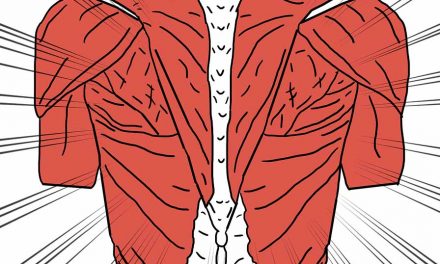Table of Contents
Meaning of Jet lag
Jet lag is a condition in which a person’s biological clock and sleep are disrupted. It can affect your sleep schedule, eating behavior, performance, focus, and motivation. Experiencing jet lag can also lead to a general feeling of fatigue, which can disrupt one’s metabolism and cause nausea.
Your body’s internal circadian rhythm (body clock) is what regulates the 24-hour sleep/wake cycle. The circadian rhythm also has an impact on physiological functions including hormones, digestion, and body temperature.
Jet lag is a common problem that afflicts air travelers who experience sudden time zone changes. Jet lag symptoms vary from person to person. The intensity of the symptoms depends on the number of time zones that have been crossed. However, some people (particularly children and teenagers) may not have any difficulty adjusting to a new time zone.
In the following paragraphs, we will learn how to effectively manage and recover from jet lag.
What causes jet lag?
The American Academy of Sleep Medicine defines jet lag as excessive daytime drowsiness or an inability to sleep after crossing two or more time zones.
Normally, the body can acclimatize to one and half time zone shifts each day, but jet lag symptoms can occur if a person traverses two or more time zones in one day. The more time zones a person travels across in a short amount of time, the more likely he/she will suffer from severe jet lag symptoms.
Additionally, traveling eastward may induce more severe jet lag symptoms than flying westward. According to researchers in this field, your body adapts more rapidly to staying up late than going to bed before your usual bedtime.
Scientific explanation of jet lag
Too much sunshine in the plane’s cabin, or too much screen time while traveling, might potentially disrupt your circadian rhythm. This is because light influences how much melatonin your body produces. Melatonin is a hormone that induces sleep. It is released in the brain at night when the lights are turned down. During the day or when the light is bright, your body reduces melatonin production, allowing you to stay awake.
How long does jet lag last?
The more time zones you traverse on your trip, the longer your jet lag will continue. The rule of thumb for jet lag recovery is that it takes one to two days of recovery for each time zone traveled. For instance, in your Seattle-to-Qatar trip (approximately 12 time zones), you could anticipate recovering in 12 to 14 days in theory.
As stated previously, flying from west to east is typically more taxing on the body than flying in the opposite direction. That is because your body is better prepared to handle an abnormally long day than it is to handle a short one. In other words, it is more difficult to fall asleep when you feel like you should be awake than it is to remain up when you feel like you should be sleeping. It may take longer to recover from jet lag after going east than it does after traveling west.
Jet lag Symptoms
The following are the most prevalent symptoms of jet lag:
- Drowsiness
- Lethargy
- Mild gastrointestinal problems, such as upset stomach and diarrhea
- Excessive drowsiness.
- Insomnia
- Nausea
- Fatigue
- Reduced mental and physical performance.
Tips to manage Jet lag
Things to keep in mind before and during your flight
If you have a long east-west or west-east flight coming up and want to reduce the effects of jet lag, start making preparations. Travelers in good physical shape – that is, those who eat well, exercise regularly, and get enough sleep – have more physical stamina and can cope better with the effects of jet lag after arrival.
Start acclimating your body to the new time zone before you travel. This strategy is not always 100% successful for travels that cross many time zones during their flight. For example, it would be difficult to shift your life ahead 12 hours in preparation for a journey from California to Madagascar. However, you may begin making tiny modifications to your schedule, hour by hour, a few weeks before your flight. This will help you ease into the new time zone and shorten the length of your jet lag recovery period.
If you are flying across eight to twelve time zones, consider including a layover to deal with jet lag. A few days at a midpoint might allow your circadian clock to catch up before traversing more time zones. Finally, obtain a good night’s sleep before your flight, and plan to wear comfortable clothing for your journey.
Here are some important tips to prevent or at least mitigate the impact of jet lag:
- Do not drink alcohol or caffeine right before or during your flight. Chamomile and Peppermint tea can act as a satisfying coffee replacement because it is a warm and flavorful beverage, but without the side effects.
- Avoid overly salty or sugary food while you travel.
- Always stay hydrated.
- Get some light exercise on board. Try shoulder stretches, neck rolls and toe raises.
- Bring earplugs and an eye mask on board to assist in decreasing noise and light.
- If you are flying into a city where it is midnight at arrival, try to remain awake for the flight duration. This way, you will already be taking steps to acclimate yourself to your destination’s time zone.
- When you board the plane, adjust your watch to the destination city. This is primarily psychological, but it helps you get into the mindset of what schedule you will be following at your destination. If you frequently have troubles with jet lag, contact a sleep specialist like a physician or psychologist who specializes in sleep medicine. Sleep specialists can help you adjust your body’s circadian rhythm by using light therapy, melatonin supplements, or prescription medicine.
Jet Lag Treatments
Jet lag symptoms are usually temporary and do not require treatment. Symptoms typically subside within a few days, although they might sometimes remain longer.
Managing jet lag after arrival
No matter how carefully you prepare for the onset of jet lag, it will almost certainly strike at some point while you are traveling. Once you arrive at your destination, take precautions to speed up your jet lag recovery.
First and foremost, get used to the local time zone as fast as possible. Even if your body feels like it is midnight when you get to Madagascar at noon, eat lunch. Make an effort to be outside in the sunlight to assist your circadian rhythm in adjusting properly. Try to stay awake until the normal bedtime hours of the destination country. It may be hard on the first day, but you will be rewarded with a speedier adjustment to the new time zone.
Light Therapy
Exposure to sunshine, among other things, affects your body’s internal clock. When you switch time zones, your body must adjust to a new daylight schedule and reset, allowing you to sleep and get up at the right time.
Your doctor may advise you to use light treatment. This entails being exposed to light that is the same color temperature as sunlight. Sunlight has a color temperature of 5000-6500 K (Daylight with Clear Sky) (sun overhead). Expose yourself to light from this light bulb for a certain length of time while you’re supposed to be awake. A light box that sits on a table, a desk lamp, or a light visor that you wear on your head are all examples of light treatment.
Medication
The medication listed below — often referred to as sleeping pills — may help you sleep while traveling and for several nights thereafter. Nausea, vomiting, amnesia, sleepwalking, disorientation, and morning tiredness are all possible side effects.
- Benzodiazepines, like temazepam (Restoril) and midazolam (Nayzilam)
- Nonbenzodiazepines, like zolpidem (Ambien) and eszopiclone (Lunesta)
Although these drugs appear to improve sleep length and quality, they may not assist with daytime jet lag symptoms. These drugs are normally only prescribed to those who have failed to respond to previous therapies.
Alternative medicine
Melatonin has been thoroughly studied as a jet lag cure and sleep aid. It is now a generally recognized component of successful jet lag treatment. Melatonin appears to help sleep during periods when you would not ordinarily be sleeping, making it useful for persons suffering from jet lag.
Melatonin is interpreted by the body as a signal of darkness; therefore, it has the opposite impact as bright light.
It’s crucial to take melatonin at the right moment. If you are trying to adjust your circadian rhythm to a new time zone, such as after traveling eastward, you should take melatonin supplements at local bedtime every night until you are adjusted to the new time zone. On the contrary, melatonin should be taken in the morning if you are trying to adjust to a later hour, such as after traveling westward.
FAQ
When is the best time to book a flight, and why does it matter?
Which flight itinerary should you take in order to get to your destination? There are four elements to consider when making your choice:
- The risk of sleep deprivation associated with getting up earlier than usual to catch a morning flight,
- Staying up later than usual to catch an evening flight,
- The desire to have phase-shifted your body clock to the destination time a few days before your flight
- When selecting a flight, people typically select the shortest flight, at the most affordable price. If the flight itinerary you select will cause a shift in your circadian rhythm when you arrive, try shifting to your destination’s time zone a few days in advance.
What should I do if my flight is delayed?
Even if your flight is significantly delayed, say more than three hours, you should attempt to stick to the above-mentioned tips as strictly as possible. Wait until you are on the airplane before taking any melatonin supplements.
Is it true that jet lag worsens with age?
According to research, jet lag may become more severe as you become older. Elderly folks and older adults may have a more difficult time recuperating from jet lag. Natural melatonin cycles were found to be irregular or reduced in adults aged 60 and older.
Should you skip meals in order to adapt to your destination’s schedule?
It is contingent upon your flight itinerary. If you can wait a few hours in order to have you meal at a time that is more in line with your destination’s time zome, do so. However, if you have a high metabolism, or experience moments of low blood-sugar or light headedness, eat whenever the opportunity arises.
Are melatonin supplements really effective for jet lag?
Melatonin tablets can help with jet lag by reducing the amount of time it takes to fall asleep, thereby reducing daytime fatigue, and increasing attentiveness during the day.
Melatonin tablets work best when taken shortly before you plan to sleep and continued for a few days at your destination in order to help you adjust to the new time zone.
If you are attempting to adjust your circadian rhythm to a new time zone, often after traveling eastward, you should take melatonin tablets at your local bedtime every night until you have acclimated to the new time zone. Melatonin should be taken in the morning if you are attempting to adjust to a later time, mostly after traveling westward. Melatonin supplements are optional and you should only take them if you can’t get the desired results from other methods like adapting your schedule to your destination’s time zone prior to the travel date.
Conclusion
Jet lag can be experienced by people of all ages while traversing more than two-time zones. As your body adjusts to a new sleep-wake cycle at your new destination, you may experience difficulty sleeping. It is possible to cross many time zones while minimizing the symptoms of jet lag. Preparing your body for a time zone change a few days prior to your flight may help minimize jet lag symptoms. Avoiding stimulants like caffeine and alcohol while you travel may minimize the unpleasant symptoms of jet lag.

















